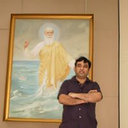Induction chemotherapy in technically unresectable locally advanced oral cavity cancers: does it make a difference?
關鍵詞
抽象
BACKGROUND
Locally advanced and unresectable oral cavity cancers have a poor prognosis. Induction might be beneficial in this setting by reducing tumor bulk and allowing definitive surgery.
OBJECTIVE
To analyze the impact of induction chemotherapy on locally advanced, technically unresectable oral cavity cancers.
METHODS
Retrospective analysis of patients with locally advanced oral cavity cancers, who were treated with neoadjuvant chemotherapy (NACT) during the period between June 2009 and December 2010. Data from a prospectively filled database were analyzed for information on patient characteristics, chemotherapy received, toxicity, response rates, local treatment offered, patterns of failure, and overall survival. The statistical analysis was performed with SPSS version 16.
RESULTS
123 patients, with a median age of 42 years were analyzed. Buccal mucosa was the most common subsite (68.30%). Three drug regimen was utilized in 26 patients (21.10%) and the rest received two drug regimen. Resectability was achieved in 17 patients treated with 3 drug regimen (68.00%) and 36 patients receiving 2 drug regimen. Febrile neutropenia was seen in 3 patients (3.09%) receiving 2 drug regimen and in 9 patients (34.62%) receiving 3 drug regimen. The estimated median OS was not reached in patients who had clinical response and underwent surgery as opposed to 8 months in patients treated with non-surgical modality post NACT (P = 0.0001).
CONCLUSIONS
Induction chemotherapy was effective in converting technically unresectable oral cavity cancers to operable disease in approximately 40% of patients and was associated with significantly improved overall survival in comparison to nonsurgical treatment.


